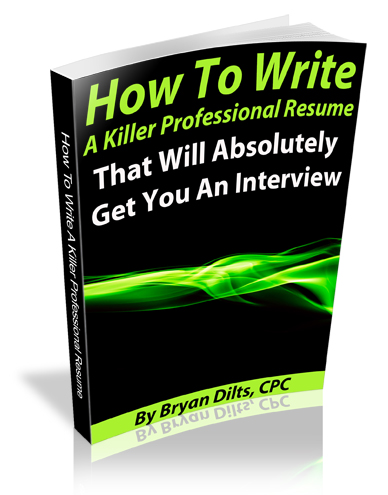Drayton Bird has sold more products and services than small countries buy in a year. Here is how he helped the daughter of a client re-write her resume and cover letter, in his words.
———-
Here is the glamorous star of this helpful idea, and even if you don’t find it useful I bet someone you know will.
She’s actually the daughter of a client, who wrote and asked me how she should write to get a job. I was intrigued because when we analysed the things people went to most and stayed at longest on my old website, one won by a mile.
Can you guess what it was?
It was, of course, “How to get a better job”. I’m kicking myself because it isn’t on the new site – so we’d better put it on there.
Anyhow, this is what my client and I cobbled together.
Most people never write a more important letter than this – yet they’re nearly all clueless!
How to write a letter to get a job
Why I would never have employed my own daughter – and what she should have done.
I bet you can relate to this.
My 19 year old daughter Ally is at a dreadful stage in her life. She’s trying to get a job, which means she has to write letters.
Admittedly it’s only for a summer job while at university, but it’s still pretty important. But since she is young with hardly any experience of this part of life, she’s at sixes and sevens on how to go about it.
Let me tell you what happened
She sent her unsolicited CV to a famous jewellery firm she is pretty keen to work for. I asked her if I could have a look at what she sent, in case I could help in future.
My heart sank when I read what she had sent, as I knew if the letter arrived on my desk I wouldn’t have wanted to interview her. I felt like kicking myself, too, since I do sales letters all the time and here was my own daughter not even getting the basics right – because I hadn’t helped.
And let’s face it, a letter to get a job can either start you out on a career – or fail to do so. This could be the most important letter she would ever write.
It got me thinking that there must be lots of other parents out there with children in the same boat so I thought everyone might benefit if I looked at how Ally could have done a better job – and she would also do better next time.
If you find these tips useful, please pass them onto any young people you know who are about to look for a job. They probably need all the help they can get.
You might even be looking for a job yourself and be a bit rusty.
Let’s look at what she sent in.
The application had no covering letter to speak of except something along the lines of, “I would like to work for your company this summer so I am enclosing my CV”. This 3 page statement of facts began like this:
“I am a hard working, intelligent and sharp person who works well on her feet. The experience from working in retail has helped me immensely in becoming very confident in selling goods to a variety of people. I have a friendly and approachable manner and greatly enjoy interaction with members of the public. I am also responsible and trustworthy, and work well in a team and on my own.”
Four things struck me when I read it.
Because there was no decent covering letter, it felt a bit like being whacked in the face with a wet fish. There was nothing linking her CV to the job she was applying for.
Secondly the whole thing was just about her and how good she thought she was.
There were no obvious benefits to the jewellery shop if they were to employ her. Thirdly and rather astonishingly there was no reference to the shop itself, or even the jewellery industry!
Fourthly the whole thing was utterly devoid of any enthusiasm or passion for the company or its products.
I was dying to tell her she should have sent in a photograph of herself as people like to see who they might be employing and it helps to get their attention, but I didn’t have the heart as it was all too late and I didn’t want to make her feel too bad.
She is such a good looking kid (Her father would say that wouldn’t he?) that I thought a photo wouldn’t do any harm, particularly as the company sells very costly jewellery.
It was no surprise to me when she didn’t get the job – a real shame as she really wanted to work for that company. You never would have guessed it though from what she sent in, and that was where she went wrong, as do thousands of others every month.
But the principles involved in getting a job are the same anywhere, and you can’t escape that fact that you have to sell yourself.
Which brings me to my main point. Never forget, getting a job is an old fashioned marketing job: you are selling yourself and the aim of what you write is to get an interview. And what does good marketing involve?
Paying huge attention to detail, spending time finding out about a person and/or organisation, (in this case the prospective employer) thinking through the benefits of something (the job applicant) to another person (the employer) – and using your imagination to increase your chance of success.
Oh, and I should mention one other thing: making an effort.
Sorry about this, but very little comes easily in life, and marketing yourself to get job is no exception. But if you get the job you want it will be worth it a hundred times over.
So here is my advice:
Write a proper covering letter for your CV
Under no account ever again should she just send a CV.
Send a letter, a proper letter and not just a skimpy “please find enclosed” letter.
Go the whole hog and send a real sales letter which gives every reason why they should employ you and answers any concerns or questions they might have about you. Don’t be afraid of going onto a second, or even a third page.
If you don’t know what a good sales letter looks like, there are heaps of examples and suggestions in How to Write a Salesletter that Sells by Drayton Bird you can look at.
Talk to the right person – and get their attention.
Think who the best person might be to write to, and find out their name.
I think my daughter should have got the name of the director or owner and written to them, in the hope that they would find her interesting and pass it onto personnel with a comment, “This person looks good.”
If you have a choice between personnel and a senior person, go for the senior person; it shows initiative and will get to them anyhow.
Enclose a photograph.
People always like to see who they might end up employing
Be enthusiastic – and prove that you are genuinely interested in them.
You can do this by referring to something you have found out about the company.
Use your research to show you know about the company and its activities: they are interested in themselves, not you.
You are trying to get the reader’s attention, and you flatter them by doing this. Nobody, no matter how senior or successful dislikes flattery, but don’t go overboard and gush nonsense – it will get you nowhere.
How will you benefit the company?
Explain your skills and experience and relate them to the needs of the company. How will they benefit by employing you?
How can you prove you are any good?
Depending on the job do you have any examples of your work to send in?
How about some testimonials from teachers, the Brownies, other employers, any damn thing for that matter. Just something which will help convince the reader that you are worth seeing.
Make an offer
You can offer to come in do the first two days work for nothing, because you know that it’s expensive to train staff. Can you think of anything else you can offer them?
Pay attention to detail
Have a big, confident handwritten legible signature, preferably in blue ink. You want to be noticed and stand out from the crowd. If you handwrite the person’s name in the salutation this gets their attention straightaway.
And try having a PS, as this is the most read part of any letter. You could use this as an opportunity to emphasise how keen you are to get the job. Or repeat your offer.
For example: P.S. I realise you get many letters like this, and many would-be employees, which is why I’d love the opportunity to come and work for a week for nothing
Don’t forget the follow-up phone call
Why not follow up with a couple of phone calls.
Talk to the important person’s secretary or P.A., who is extremely powerful in these cases.
Once three or four days later to check the letter has arrived and then again a couple of weeks later to see if there is anything else they need to know about you. Anything really to remind them about you.
As a matter of interest, I suggested to my client that even if her first letter didn’t work, a good follow-up might.
I actually proposed this opening:
“My last letter to you failed dismally – because it was awful, to be honest.
So I’m trying again.
Would you like someone so keen to work for you that I’ll gladly work for nothing while you see what I can do?
For instance, I can:
Etc.”
Best,
Drayton
P.S. Don’t forget – if you have a friend or colleague who you think would like to hear from me, please forward me their address. They’ll get a polite invitation – which they can decline – and I never share my email lists. AskDrayton.com
Drayton Bird Associates Ltd., Moyle House, Fleet Hill, Finchampstead, Wokingham, Berkshire, RG40 4LJ
Share on Facebook




